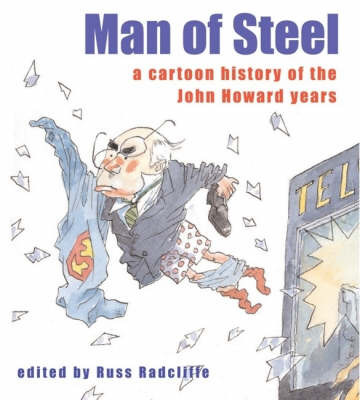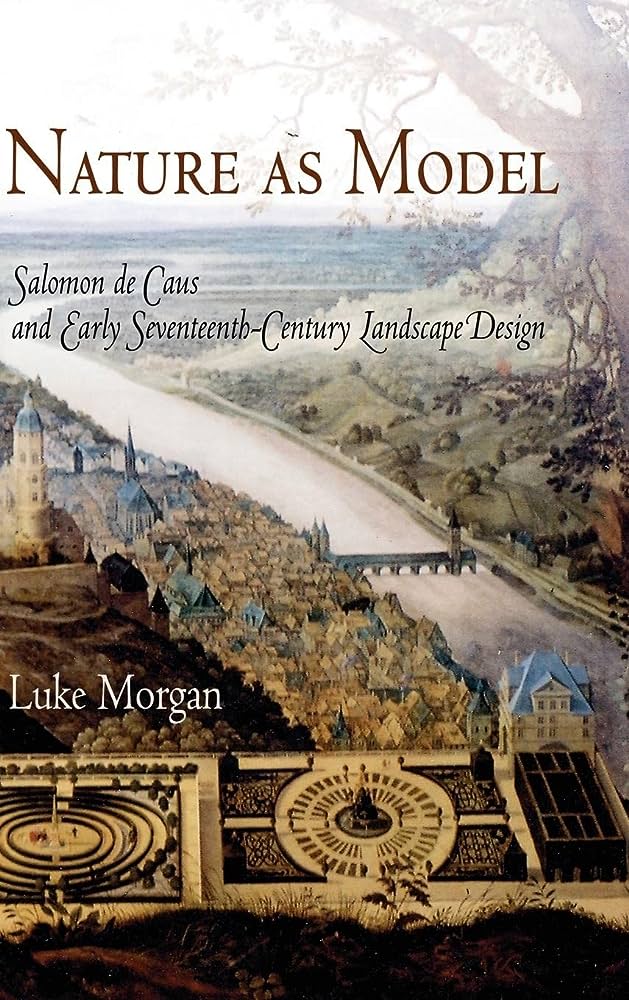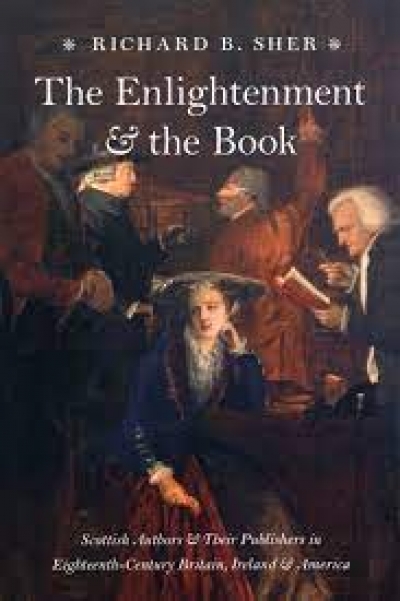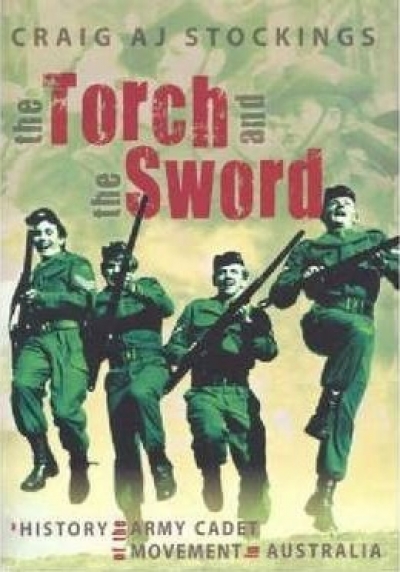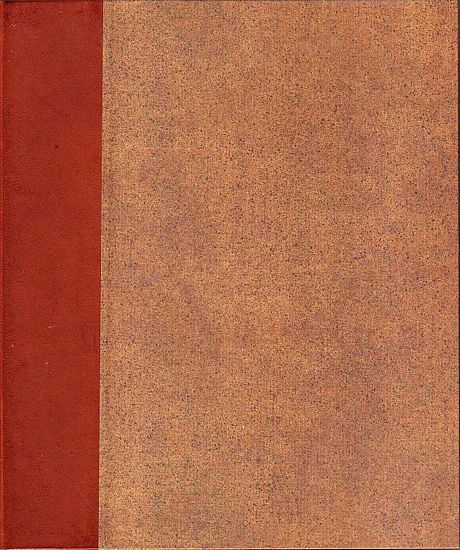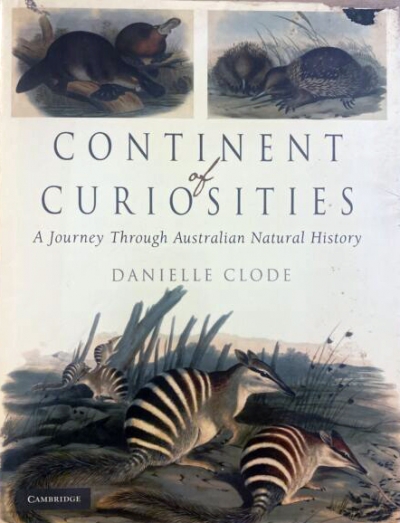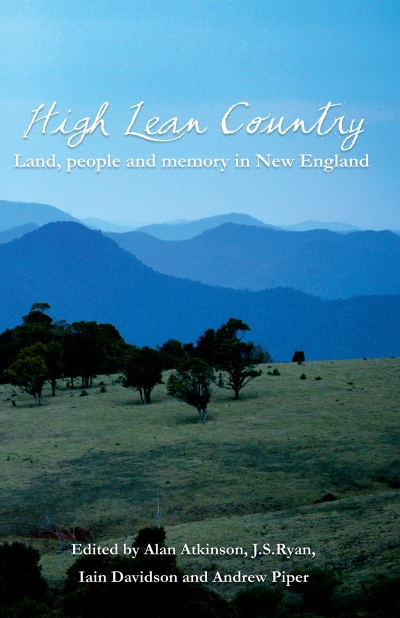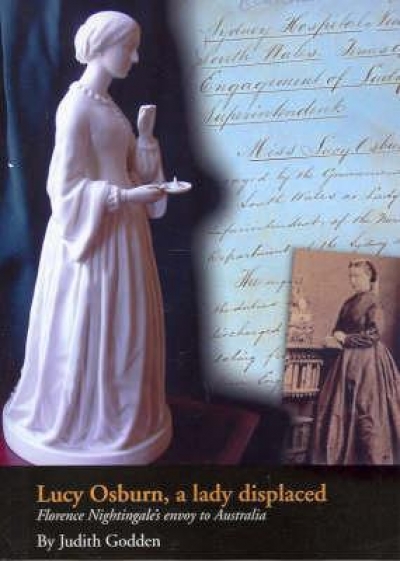History
Man of Steel: A Cartoon history of the Howard years edited by Russ Radcliffe
If you look carefully at a political cartoon, the most remarkable thing is the quantity of latent information it depends on. Opening Russ Radcliffe’s collection from the Howard years at random, I spot something from one of the nation’s less fabled cartoonists, Vince O’Farrell of the Illawarra Mercury. It is a picture of a military aircraft marked Labor, barrelling along the ground. The pilot has a pointy nose and broad girth, and the co-pilot’s voice bubble tells us, ‘I say skipper … That’s the end of the runway and we still haven’t taken off’. The whole story of Bomber Beazley’s last, tortured term as Opposition leader is there in an image and a couple of words that takes only seconds to assimilate.
... (read more)Nature as Model: Salomon De Caus and early seventeenth century landscape design by Luke Morgan
In the early seventeenth century, the German princely territory of the Palatinate burst on to the centre of the European political stage. In August 1619 the Elector Palatine Frederick V – ruler of one of the most prosperous and culturally vibrant territories of the Holy Roman Empire, and a leader of Protestants throughout Europe – was elected king of Bohemia. This put him in opposition to the newly elected Holy Roman Emperor, Ferdinand II, an Austrian Hapsburg and leader of the Catholic forces, who had been deposed a year earlier by the same rebellious Bohemian estates which then elected Frederick. These events quickly fuelled what has come to be known as the Thirty Years War (1618–48), one of the most ferocious in Europe’s bloody history.
... (read more)The Enlightenment and the Book: Scottish authors and their publishers in eighteenth-century Britain, Ireland and America by Richard B. Sher
The Enlightenment gave birth to our modern world. Within this broad movement, spread over many countries, the contribution of Scotland was of pre-eminent importance. We all know the names of Adam Smith and David Hume, and we recognise their influence today, but how did their ideas get out into the wider world? Of course, there were books, Hume’s Treatise of Human Nature (1739–40) and Smith’s Wealth of Nations (1776) amongst the best known. But where were their books published? Who printed them? Who published them? How were they marketed? These are questions which we have probably never posed to ourselves, but they are vital to our understanding of how writers from a small country on the edge of Europe came to play such an important part in this international movement. As Richard B. Sher points out, we know the writers but we don’t know the publishers and printers without whom their books would never have reached the public. In this book he sets out, amongst other things, to redress the balance.
... (read more)The Torch and the Sword: A history of the army cadet movement in Australia by Craig A.J. Stockings
The Torch and the Sword began life as Craig Stockings’s PhD thesis, and shows its origins on every page. He presents a hypothesis and refers to it often as he proceeds systematically through a chronological and thematic exposition of his subject.
... (read more)Evil in Modern Thought: An alternative history of philosophy by Susan Neiman
Late in in the thirteenth century, Alfonso X (‘The Wise’), king of Castille, declared: ‘If I had been of God’s counsel at the Creation, many things would have been ordered better.’ He raised a storm. That wickedness, natural disaster and the inexorable corruption of things filled the world with suffering had hardly gone unnoticed, of course. Theologians had long sought to reconcile the existence of evil with God’s omnipotence and benevolence. But Alfonso reanimated a worm in the heart of reason: the suspicion that, really, God could have done better.
... (read more)The official published accounts of Captain Cook’s three great voyages (1768-79) were immense popular successes in Britain. That for the third voyage sold out within three days of publication in 1784. When the Frenchman La Pérouse sailed from Botany Bay in March 1788 into the Pacific – and into oblivion – he remarked that Cook had done so much that he had left him nothing to do but admire his work. In the previous year, the German, Georg Forster, had published in Berlin his eulogy of Cook, Cook der Entdecker (Cook the Discoverer). Cook was the first international superstar, and time has only increased his celebrity status. Major scholarly biographies continue to be published, and seminars which feature Cook in their titles are sell-outs. The name is box-office magic.
... (read more)Continent of Curiosities: A journey through Australian natural history by Danielle Clode
In the late twentieth century, museums throughout the world faced a number of challenges. Confronted with a plethora of flashy new technologies, they struggled to overcome a perception of irrelevance and fustiness. Bureaucrats demanded that museums pay their way, entertain the masses, and meet the growing expectations for instant gratification and information without effort.
... (read more)Universal dictionaries are no longer possible or desirable. If we would conquer the realm of knowledge we must be content to divide it.’ Thus wrote The Times on 5 January 1885 in its first article on the Dictionary of National Biography (DNB), whose initial supplement – the first of an eventual sixty-three published over the next fifteen years – was then about to appear.
... (read more)High Lean Country: Land, people and memory in New England by Alan Atkinson et al.
I recently went back to New England. It is a long drive from Melbourne, but as I passed through Coonabarabran and Tamworth and began the ascent up the Moonbi Ranges, my gaze responded to the strange and familiar landscape. I periodically wound down the car window to smell the air – crisp but still warm for autumn. I grew up in a few different New England towns – Inverell, Glen Innes, Armidale – so I am familiar with the territory covered in the fascinating essays in High Lean Country. The high elevation of the Tableland makes the winters cold, summers mild. The dramatic landscape is dotted with granite mounds and monoliths. It is edged to the east by the escarpment and the gorge country of Judith Wright’s poems.
... (read more)Lucy Osburn, A Lady Displaced: Florence Nightingale's envoy to Australia by Judith Godden
The cover of Judith Godden’s biography of Lucy Osburn, the founder of modern nursing in Australia, is dominated by a ghostly white statuette of Florence Nightingale. Lucy herself appears in a bottom corner, photographed with a book in hand, an insignificant figure dressed in black silk, with a white cap over a severe hairstyle. At times, it seems as if Nightingale is going to overshadow the book, too. But despite her largely unsuccessful attempts to carry out the wishes of the ‘lady with the lamp’ in New South Wales, Osburn did succeed in creating conditions whereby scientific practices could be introduced into nursing in Australia, though she failed to convince the medical establishment that women could be trusted with medical knowledge or were capable of managing hospitals.
... (read more)

